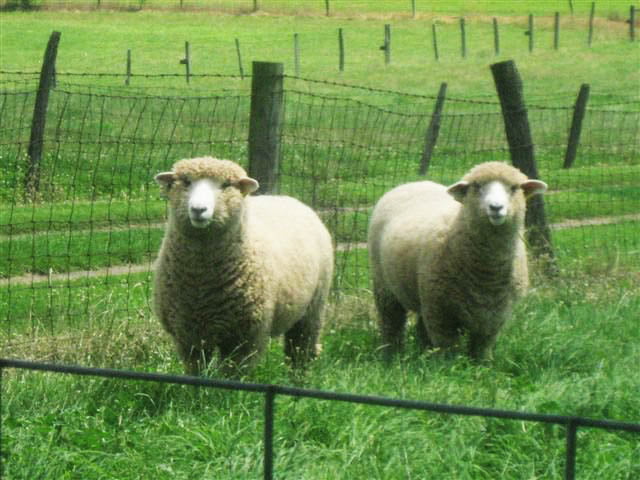Basic Shepherd Supplies
Basic Shepherd Supplies
This list is a basic guide to sheep supplies and can be adjusted depending on a shepherds experience, geographic location, and facilities. As you gain more experience you will be able to identify additional needs specific to your flock. What we have tried to accomplish with this list is to give you a starting point to secure a successful future with your Romney Sheep. This is not a lambing supply list but a list of tools needed for routine work with your flock.
- Reference Material- Invest in a good reference book to help answer questions concerning raising sheep. The most popular book is written by Paula Simmons called “Raising Sheep the Modern Way”. American Sheep Industry’s “Sheep Production Handbook” is also useful.
- If your county has a Conservation District or Extension office look into the support services they provide for agriculture endeavors in your area. They may be able to help with mud control, manure management, noxious weed identification, etc.
- Fencing- Fencing should be a minimum of woven fence either Field, Sheep, No-Climb horse fencing or New Zealand style fencing. Barbed wire should be limited to use along the ground or above the woven fencing for added predator protection. Make sure the area the sheep will be in is clear of potential hazards; don’t assume they will steer clear of dangers.
- Veterinarian- Large animal Veterinarians are becoming increasingly difficult to find. You should locate a Vet or Clinic whose practice includes sheep and make contact with that clinic before your sheep arrive. When faced with a situation you are unsure of do not hesitate to contact your Vet.
Basic Equipment:
- Halters
- Hand Shears
- Hoof Shears
- Shepherds Crook (neck or leg)
- Dousing syringe/Drenching Gun
- Thermometer
- Syringes- 3cc to 12cc
- Needles- 18 to 22 gauge
Basic Medications: Always use the right medication for the condition being treated. If you are unsure consult your veterinarian. Some of these medications can be picked up at your local feed store or ordered online. Stronger or more specific medications can be acquired through your Vet office.
- Vaccines- CDT/Covexin 8
- Antibiotics- LA200(Tetracycline)
- Penicillin
- Pepto Bismo- There are farm varieties available by the gallon (Kaolin Pectin, Bismuthsubsalicylate) at your feed store.
- Mineral Oil
- Terramycin- This is an eye treatment
- Sulmet- it is an oral sulfa drug which works in treating coccidia and a variety of other illnesses such as pneumonia.
- Betadine-antiseptic scrub
- Topical antiseptic- there are several kinds available: Blue Coat and Red Coat are very popular.
- Nutri-drench- This is an energy drench, there are others available in the market, many people make their own with common ingredients from the grocery store. Drenches help give your sheep a boost of energy when needed.
Dewormers- There are a number of dewormers available, name brand and generic. Oral dewormers are Ivomec Sheep Drench, Valbazen, and Cydectin. Injectable Dectomax, Ivomec, and Ivomec Plus. Before deworming be sure you know what worms you are attempting to get rid of and the extent of the worm load in your flock. Your vet can check a stool sample for you at a reasonable cost and suggest the most effective wormer for your location and situation.
Hoof Treatment- If you encounter Hoof Rot, Foot Scald or abscess and a hoof treatment is needed make sure you review which treatment is appropriate for the situation.
Loose Minerals/ baking soda- Sheep should always have a good salt mineral mixture available to them that was specifically formulated for sheep. Baking Soda should be offered free choice to avoid bloat and other stomach issues.

